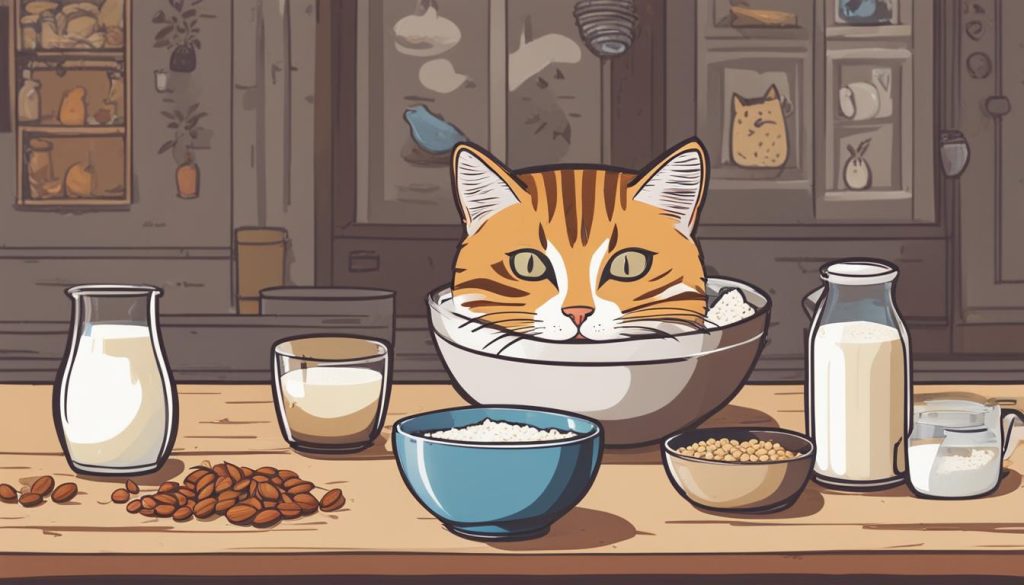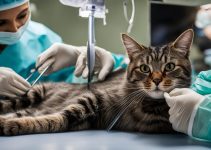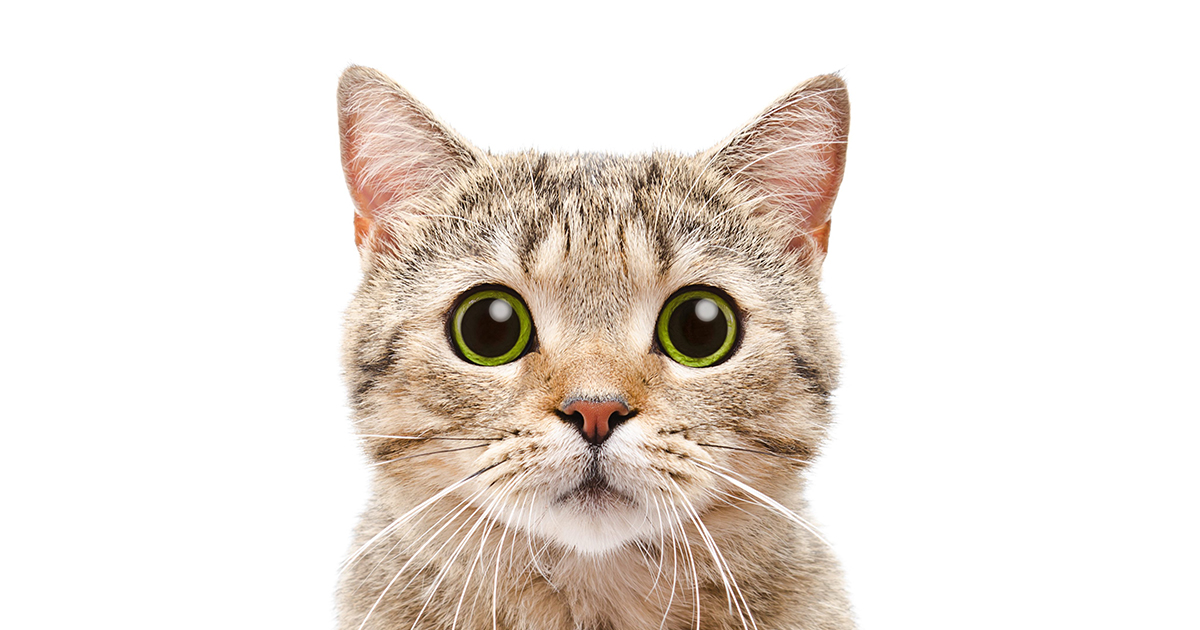Soy milk and coconut milk are popular alternatives for people with lactose intolerance, but what about cats? As a cat owner, I’ve often wondered if my feline friend can enjoy these beverages too. That’s why I decided to delve into the topic and find out if cats can drink soy and coconut milk.
Can Cats Drink Soy and Coconut Milk? No, it can be extremely harmful.
- Cats should not be given soy milk or coconut milk as these beverages can be harmful to their health.
- Soy milk contains complex carbohydrates that cats cannot digest, leading to gastrointestinal problems.
- Coconut milk is high in fat and calories, which can contribute to obesity in cats.
- Instead, it is best to focus on providing cats with a balanced diet of cat-friendly foods that meet their nutritional needs.
- Milk alternatives should only be given sparingly and as occasional treats.
Why Soy Milk is Not Safe for Cats
When it comes to finding suitable milk alternatives for cats, soy milk may seem like a good choice at first. After all, it is lactose-free, which is beneficial for cats with lactose intolerance. However, soy milk is not safe for cats due to its high levels of complex carbohydrates that cats cannot digest. These carbohydrates, such as stachyose and raffinose, can lead to gastrointestinal problems like diarrhea, vomiting, and abdominal bloating. Not only that, but the sugar content in soy milk can also contribute to dental disease in cats.
In order to ensure the well-being of your feline friend, it is best to avoid giving soy milk to cats altogether. Instead, focus on providing them with a balanced diet of cat-friendly foods that meet their nutritional needs. There are other milk alternatives available that are safer for cats to consume in moderation.
The Risks of Soy Milk
Soy milk contains complex carbohydrates that are difficult for cats to digest, leading to gastrointestinal problems such as diarrhea, vomiting, and abdominal bloating. In addition, the sugar content in soy milk can contribute to dental disease in cats. While soy milk may be a suitable alternative for lactose-intolerant humans, it is not recommended for cats.
Instead of soy milk, it is best to focus on providing cats with a balanced diet of cat-friendly foods that meet their nutritional needs. Look for high-quality cat food that is rich in protein, low in carbohydrates, and high in moisture. This will ensure that your cat gets the necessary nutrients for their overall health.
The Risks of Coconut Milk for Cats
Coconut milk, with its creamy texture and tropical flavor, may seem like a tempting treat for our feline friends. However, it’s important to understand the potential risks associated with feeding coconut milk to cats. While a small amount of coconut milk may not cause immediate harm, repeated consumption can have detrimental effects on a cat’s overall health.
One of the primary concerns with coconut milk is its high fat content. Cats have specific dietary needs, and excessive fat intake can lead to obesity, especially in cats with decreased mobility or genetic predispositions to weight gain. Obesity can result in a range of health issues, including diabetes, joint problems, and heart disease.
Additionally, coconut milk can be challenging for cats to digest properly. Cats have a unique digestive system designed to process meat-based diets efficiently. Introducing fatty or unfamiliar foods like coconut milk can disrupt their digestion, leading to gastrointestinal problems such as diarrhea, vomiting, and stomach discomfort.
The Importance of Cat-Friendly Milk Alternatives
Given the risks associated with coconut milk for cats, it is crucial to explore cat-friendly milk alternatives that provide similar flavors and textures without the potential harm. While cats do not require milk in their diet, there are suitable options available for occasional treats or dietary supplementation.
When considering milk alternatives for cats, it is important to prioritize their nutritional needs. Look for specially formulated feline-friendly milk products that contain minerals, vitamins, and essential nutrients. These options are designed to meet the specific dietary requirements of cats, ensuring they receive the necessary nourishment without compromising their health.
Remember, cats thrive on a balanced diet consisting primarily of high-quality cat food that provides essential nutrients, particularly protein-rich options. Wet food is especially beneficial as it helps with hydration. Treats and milk alternatives should only be given sparingly and should not make up a significant portion of a cat’s daily calorie intake to maintain their overall well-being.
Healthy Milk Alternatives for Cats
While soy milk and coconut milk are not suitable for cats, there are other milk alternatives that can be safely given to them in moderation.
Lactose-free cow milk:
Lactose-free cow milk can be an option for cats, as it does not contain lactose, which many cats cannot properly digest. However, it is important to note that lactose-free cow milk lacks essential nutrients that cats need, so it should not be a significant part of their diet. It can be given occasionally as a treat.
Yoghurt:
Yoghurt can be beneficial for cats as it contains probiotic bacteria and calcium. However, it is important to choose plain, unsweetened yoghurt without any added flavors or sweeteners. Yoghurt should only be given sparingly and not as a regular part of a cat’s diet.
Feline-friendly milk products:
There are specially formulated milk products available for cats that contain essential minerals, vitamins, and malt extract, which is good for hairball digestion. These feline-friendly milk products can be given as occasional treats, but they should not be a significant part of a cat’s diet.
While soy milk and coconut milk are not safe for cats, there are alternative milk options that can be given to them in moderation. Lactose-free cow milk, plain unsweetened yoghurt, and feline-friendly milk products can provide some nutritional benefits for cats. However, it is important to remember that milk alternatives should only be given as occasional treats and should not replace a balanced diet of cat-friendly foods that meet their nutritional needs.
Creating a Balanced Diet for Cats
When it comes to the health and well-being of our feline friends, providing a balanced diet is essential. Cats have specific dietary requirements, including a high protein intake, low carbohydrate consumption, and adequate moisture levels. To ensure their nutritional needs are met, it’s crucial to prioritize their diet and make informed choices.

The Importance of a Balanced Diet
A balanced diet plays a vital role in maintaining a cat’s overall health and longevity. High-quality cat food that is specially formulated to meet their nutritional needs should be the foundation of their diet. Look for products that provide a complete and balanced combination of proteins, fats, carbohydrates, vitamins, and minerals.
Focusing on wet food is particularly beneficial for cats as it helps keep them hydrated. Cats have a low thirst drive, so providing moisture-rich food can prevent dehydration, which can lead to urinary tract issues.
Monitoring Calorie Intake
Monitoring calorie intake is crucial to prevent obesity and related health issues in cats. Each cat is unique, and their calorie needs may vary depending on factors such as age, activity level, and overall health. It’s important to consult with a veterinarian to determine the appropriate calorie intake for your cat and adjust their diet accordingly.
Treats should be given sparingly and should not contribute significantly to a cat’s daily calorie intake. Opt for healthy, cat-friendly treats that are specifically formulated to provide additional nutrients while keeping calorie content in check.
By creating a balanced diet tailored to your cat’s individual needs, you can ensure they receive the necessary nutrients for optimal health and well-being. Remember, cats should not rely on milk alternatives such as soy milk or coconut milk as their primary source of nutrition. Instead, focus on providing them with a variety of cat-friendly foods that meet their dietary requirements.
Conclusion
It is important to prioritize the health and well-being of our feline friends when it comes to their diet. While soy milk and coconut milk may be suitable alternatives for humans, they are not safe for cats. Cats cannot digest the complex carbohydrates found in soy milk, which can lead to gastrointestinal problems and dental disease. Additionally, the high fat and calorie content in coconut milk can contribute to obesity in cats, especially those with decreased mobility or genetic predispositions to obesity.
Instead of offering soy milk or coconut milk to our cats, we should focus on providing them with a balanced diet of cat-friendly foods. Cats require a diet that is high in protein, low in carbohydrates, and rich in moisture. High-quality cat food that provides the necessary nutrients is essential for their overall health. Wet food can also be beneficial as it helps with hydration.
While other milk alternatives such as yogurt and lactose-free cow milk can be given to cats in moderation, it is important to remember that these should only be occasional treats and not a significant part of their diet. It is best to look for specially formulated, feline-friendly milk products that contain essential minerals, vitamins, and malt extract for hairball digestion. However, treats should be given sparingly and should not contribute significantly to a cat’s daily calorie intake.
By focusing on a balanced diet and providing our cats with the nutrition they need, we can ensure their health and happiness for years to come.
FAQ
Can cats drink soy milk?
No, cats should not be given soy milk as it contains complex carbohydrates that they cannot digest, leading to gastrointestinal problems and dental disease.
Is coconut milk safe for cats?
No, coconut milk is not safe for cats as it is high in fat and calories, which can contribute to obesity in cats.
What are some healthy milk alternatives for cats?
While soy milk and coconut milk are not suitable for cats, yogurt can be given sparingly as it contains probiotic bacteria and calcium. Lactose-free cow milk can also be given, although it lacks essential nutrients. It is best to look for specially formulated, feline-friendly milk products that contain minerals, vitamins, and malt extract.
How can I create a balanced diet for my cat?
Cats require a diet high in protein, low in carbohydrates, and rich in moisture. It is recommended to feed them high-quality cat food that provides the necessary nutrients. Wet food can help with hydration. It is also important to monitor their calorie intake to prevent obesity and related health issues.






